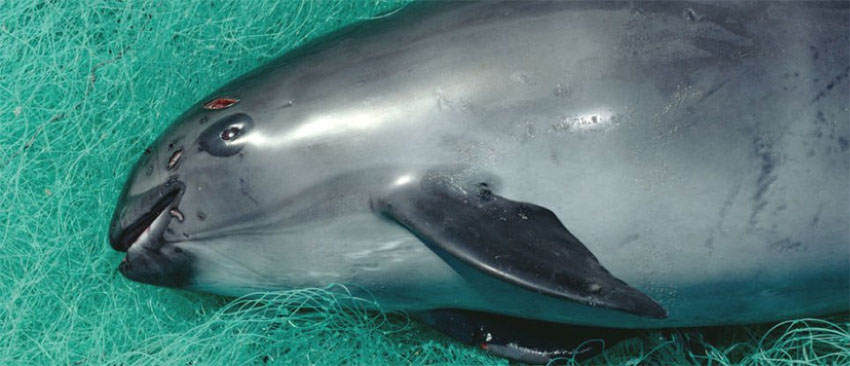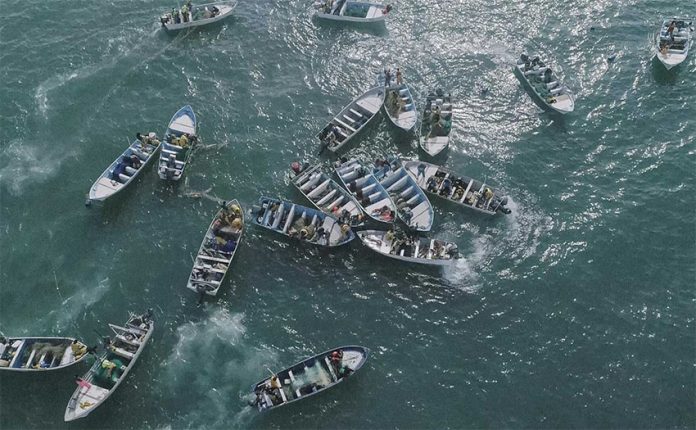If Mexico fails to take action to protect the vaquita porpoise from illegal fishing, the country could face trade limits as soon as February, the world’s leading species protection body said on Wednesday.
The vaquita (also known as the vaquita marina) is the world’s tiniest marine mammal and has long teetered on the brink of extinction, with some studies suggesting there are only between 10 and 20 vaquitas left in the wild.
Due to illegal fishing of the coveted totoaba fish — another endangered species that retails in China’s black market for thousands of dollars and that is only found in the Gulf of California — many vaquitas have been found entangled in the gillnets used by local fishers and totoaba poachers.
Mexico’s ineffective conservation measures have brought the committee of the Convention on International Trade in Endangered Species of Wild Fauna and Flora (CITES) to consider possible trade restrictions for Mexico if the country fails to come up with an effective conservation plan.

“If they do not submit a plan by February, the recommendation is to suspend all product trade from CITES species,” said a lawyer of the convention to Reuters, citing those are its “strongest measures.”
Blanca Alicia Mendoza Vera, Minister of the Office of the Environmental Prosecutor (Profepa) requested for the issue to be discussed over the next two weeks in Panama City, during the meeting of the CITES members.
In an interview with the Mexican news agency Excelsior, Mendoz Vera argued that every six months, updates to the program to prevent illegal totoaba fishing are submitted to CITES with proven results. A national sustainability agreement focused on the northern part of the Gulf of California already drives actions to comply with international commitments, she said
She also said the Navy uses technology to immediately detect illegal fishers, and that concrete blocks with hooks were placed to trap the gillnets that enter the so-called Vaquita Marina Zero Tolerance Zone.
If there was no other option but to create a new plan, Mendoza said, the United States and China must also be involved as the former is a transit country and the latter, a destination country for the totoaba.
Both China and the U.S. are aware of the threat posed to the vaquita by illegal totoaba fishing and have held meetings to address the problem.
In June 2015, China and the U.S. held their first high-level meeting on the smuggling of totoaba, followed by another summit in 2016 of Mexican, Chinese and U.S. officials in Geneva. In 2018, China prosecuted its first totoaba smuggling case.
The latest advances include the first consultations under the U.S.-Mexico-Canada agreement (USMCA) requested by the U.S. in February, over Mexico’s lack of protection of the vaquita. Later in April, an environmental commission of the USMCA agreement recommended a full investigation into allegations that Mexico has failed to protect the endangered porpoise in the Upper Gulf of California.
The totoaba bladder is believed by many Chinese buyers to have medicinal properties, making trade of the fish more lucrative than cocaine trafficking. The bladder can cost up to US $5,000 in Mexico, between $10,000 and $15,000 in the United States, and up to $60,000 in China.
